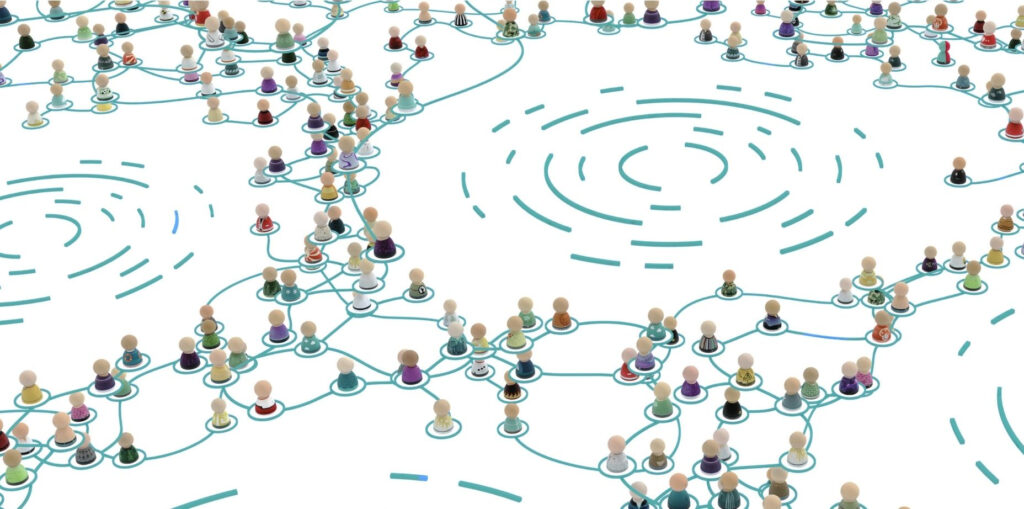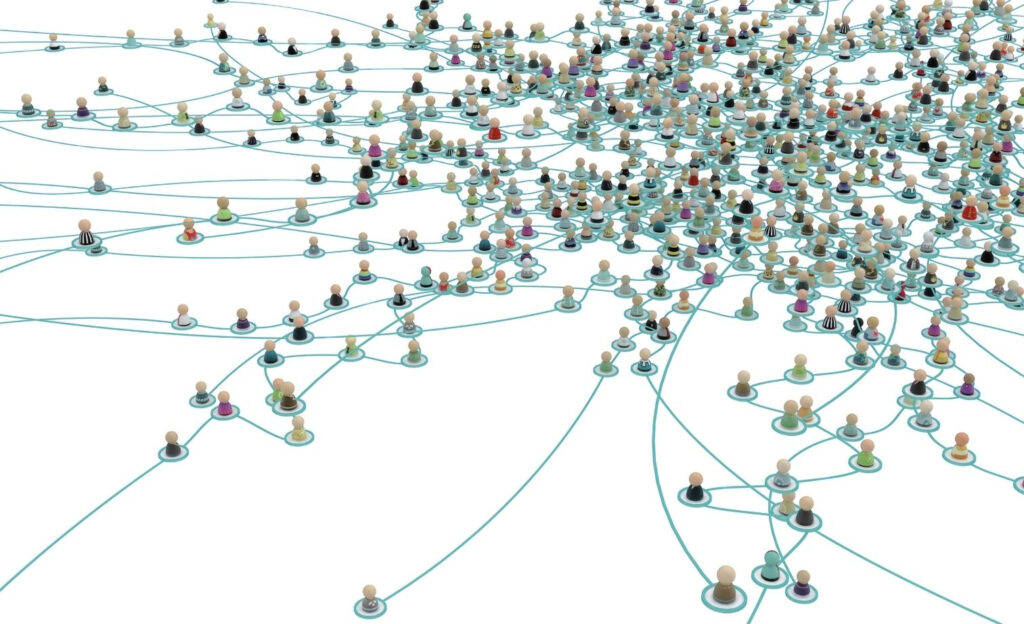In this first article of this series, I will argue that intentional, international sending is still needed for the sake of the kingdom in the 21st century. In the second, we will explore the significance and power of a ‘sending message’. And in the third and final article, I will argue that, in a polycentric world, we will need many, complementary sending messages. Without appropriate sending the whole church may possibly take the whole gospel, but surely not to the whole world.
If ‘Mission’ Involves the Whole Church
‘As we are all saints, so we are all missionaries.’ ‘Mission is our identity.’ ‘Mission is not an action, but our heartbeat.’ [1] It was exciting for me to hear these words recently at a gathering of church leaders here in Wales where I live. Once, this land was filled with the sound of the gospel. Now the churches and chapels are almost empty. How we need the whole church in Wales to take the whole gospel to the whole of Wales!
Such messages are exciting for my nation, but perplexing for global mission. If mission is as much for every member of the local church as for the traditional missionary, what is to become of what we used to know as mission? What about being sent to another country or another culture? The Latin word ‘to send’ is in the origin of the word ‘mission’. But in Wales, at least, the word ‘mission’ no longer carries that meaning.
I don’t challenge the validity of these various statements about mission. After all, the whole church is one of Lausanne’s three ‘wholes’. We need every member engaged and energised. But where does that leave ‘going’ or ‘sending’? Should we go, or should we stay? Should we send people, or should we call for people to come and help us? These remain important questions.
And what do my colleagues in ‘the missions world’ say? Are they preserving the historical meaning of ‘mission’? I am not sure. From many of them I hear that mission is now ‘from everywhere to everywhere’. That sounds great and noble, and it also has a welcome ring of equality. It is good that it gets us away from thinking that mission is all ‘from the West to the rest’. But Wales is a part of ‘everywhere’. It is clearly both a part of the ‘from everywhere’ and also a part of ‘to everywhere’. So, this paradigm too makes me think that I can be a missionary from Wales and to Wales—right where I am. Whether I listen to my local church leaders or to global mission thinkers, I am getting the impression that I don’t need to go to, or send to, or pray for other parts of the world, and maybe no one does.

And if ‘Mission’ Includes the Whole Gospel
‘The Mission of God’[2] is now seen as encompassing the work of the local church, and including not just evangelism but all that God wants to accomplish in the world. In us who believe, the world should encounter the full righteousness that is apart from the law. ‘But now apart from the law the righteousness of God has been made known, to which the Law and the Prophets testify.’[3] And the Law and the Prophets repeatedly testify that righteousness encompasses not just faith, but justice and mercy too[4]. Jesus himself says to the teachers of the law and Pharisees, ‘You have neglected the weightier things of the law—justice, mercy and faith.’[5] The world needs to see that ‘whole gospel’.
A recent Lausanne article about Korea’s LAMS, ‘Life as Mission School’ testified to this broadening of understanding of the meaning of ‘mission’, both in terms of location and of activity.[6]
Then Let Appropriate Sending Continue to Take Us to the Whole World
For centuries, mission has been intrinsically about sending and going. A missionary was someone who went, usually to another country. The word ‘mission’ is now much broader than it was, far from the original Latin root meaning ‘to send’. In Wales, in South Korea and for many global mission thinkers it is now too broad to convey what I want to discuss in these articles. I want to talk about the movement of Christians and Christian resources around the world. So I will use the word ‘sending’.[7] What is ‘appropriate sending’ in our polycentric world?
The fact is that people and resources are not always in the best location to be most effectively used for the kingdom. And for the sake of mission, that crucially includes the resource of prayer. We can naturally pray for our own town or our own nation. But it takes a deliberate decision to ‘send’ our prayers further afield, to pray even for places and people that we have never seen. William Carey put prayer first[8], before the practicalities of forming a mission society.
You will probably find me stretching the word ‘sending’ a little. At times it will be as much about ‘going’ or ‘receiving’. And I will certainly use it to mean praying for people in other parts of the world—’sending’ our prayers if you will. I am also thinking of words like ‘coming’, ‘inviting’, ‘migrating’, ‘diaspora’, ‘expatriate’ and even ‘social media engagement’. For the purposes of these articles, and the dialogue that I want to stimulate, the crucial thing is that two different parts of the world are involved.

Today’s World Is Again Polycentric
500 years ago, European peoples began to migrate worldwide. While encountering a polycentric world including other empires and dynasties, European nations (as well as a modernized Japan) eventually established their own international empires. To many, the world began to seem largely mono-centric, with European peoples, it seemed, dominating the whole world. By 50 years ago, those empires had largely broken up and the two ‘superpowers’ of the US and USSR began to dominate much of the world. The decline of that Cold War situation, and the increasing self-confidence of many nations and trading blocs, have resulted once again in a politically and economically polycentric world, albeit with a greater interconnectedness than before the start of European migration.[9]

Our Work Is Polycentric
As I have considered the polycentric nature of the world and how it affects our work, I have been reminded of a statement by Ni Tuosheng (Watchman Nee as he is known in the West) in the last century. He had always been adamant about the essential unity and autonomy of the local church under its elders. Later, he came to understand something else. ‘The church is local’, he reaffirmed, ‘but the work is regional.’
It seems to me that while our congregations have always been and remain local, our work has always been and remains regional. We could say that the work is polycentric. From the beginning, Jesus modelled for us the regional nature of our work. While he affirmed the local gathering by preaching in synagogues, he made it clear that he had been sent by his Father to cover a specific region and people group.[10] During his few years of ministry on earth he could do no more, and he did not attempt it. Paul, likewise, did not attempt to cover the known world with his ministry, nor did he confine himself to a single city. He kept to the Northeast Mediterranean area for his work,[11] criss-crossing it repeatedly. And when finally he felt there was no more work for him in that region, he chose to target another region.[12]
It is not for one human to evangelise the whole earth. It was not even on the agenda for our mighty Lord during his limited lifetime on earth.
But There Remains a Global Mission
So our congregations are local, our work is regional, but our overall mission is global.
So our congregations are local, our work is regional, but our overall mission is global. This too has always been true. The mission has always been global: from Adam and Eve (fill the earth)[13], through Abram (every family)[14], David (all you nations)[15] and Jesus (to the ends of the earth)[16] to Revelation (every nation, tribe, people and language)[17].
Notably, it is intrinsic to Lausanne’s ambition that all these three levels work together in harmony—congregation, work and overall mission—the local, the regional and the global—the local church, the regional gospel proclamation, encompassing the whole world.

So, in a Polycentric World, Is Sending Still Necessary?
With congregations now in every country, the Church has great strength in every continent. Let us continue to celebrate this great new fact. But does that yet mean the end of sending?
Can we all stay where we are?
Now that the church is global, can we all just stay where we are, evangelise our own social networks, work for justice in our own society, give to the poor in our own neighbourhood, and see God’s kingdom fill the earth in that way? Shall we do without costly international expatriation? Can we avoid the long, hard work of learning an alien language and immersing ourselves in a different culture? It will be much easier if we can, and the spread of Christianity suggests that an end to intentional sending is closer now than a hundred years ago. So, if it is not realistic immediately, when will this option become viable for the church worldwide?
Under what circumstances should we cease major sending?
Under what circumstances should we cease major sending of people, resources and prayer? I say ‘major’ because I believe that there will always be reasons why the Holy Spirit might move a person from here to there. We are one body, and we must bless each other. But under what circumstances should mission mobilisers, for instance, cease to encourage significant numbers of people to exchange their own country or culture for another?
The main reason for intentional sending is inequality
I believe that the answer can be summed up in one word— equality.
Jesus worked for equality of the good news. In Luke 4:42-43, the people were looking for Jesus and when they found him, they tried to keep him from leaving them. But he said, ‘I must proclaim the good news of the kingdom of God to the other towns also, because that is why I was sent.’ If there had been an equality of good news about the kingdom in all the towns, Jesus would not have had to move on.
Paul (copying God’s pattern) worked for equality of food. In the second of the two letters we have from Paul to the church of God in Corinth he writes, ‘Our desire is not that others might be relieved while you are hard pressed, but that there might be equality. At the present time your plenty will supply what they need, so that in turn their plenty will supply what you need.’ The goal is equality, as it is written: ‘The one who gathered much did not have too much, and the one who gathered little did not have too little.’[18] Paul refers to the God-ordered distribution of manna in order to justify a human-ordered collection for Jerusalem. If there had been equality of food between the saints in Corinth and in Jerusalem, the collection would not have been needed.
Or consider how evenly the waters cover the sea. The Prophets anticipate an equal spread of glory and the knowledge of God ‘as the waters cover the sea’[19]. What more wonderful picture of evenness could there be in the natural world?
Equality would not mean that our work is complete
If there is equality of food there is no need to send food (or money as a proxy) in acts of mercy. If there is equality of the presence of Jesus, there is no need to send Christians. If there is equality of the gospel and glory, then there may still be much work to be done, but it will no longer need to be across borders or across cultures. Justin Long reminds us in his blogpost on ‘Sustainable Closure’ of the simple fact that ‘new babies are being born every minute’. So, apart from anything else, we will always and in every place have the responsibility to teach the next generation.[20] If there were equality, each of us could devote ourselves mainly to our own culture, our own nation, our own children. Our congregations would still be local, the work still regional (often meaning national) and no major sending would be required.
Is there still enough inequality to justify major sending?
So, the crucial question is: have we reached that point? Have we reached a threshold of equality where major sending is no longer required? It is true that the church is now established in every country of the world. There are many aspects to equality, and we could well examine access to justice, food, water, or the Bible for instance. But let me just take one simple example as an important example of global equality—the presence of Christians.
About one third of people on earth identify as Christian. But most Christians live in a country where more than 70% of people call themselves Christian. Let that sink in. More than half of us live in a country, not where half of the people are Christians, but more like three quarters! Many of those countries now are non-Western. Let us praise God for that! But at the same time, most non-Christians live in a country where less than 10% of people are Christians.[21] There is still a divide, an inequality. If we look at the world by ethnicity, the situation is even more stark. Most Christians are part of a people group where more than 88% are Christian, and most non-Christians are in people groups where less than 2% are Christian.[22]
Staying Where We Are May Get Lausanne Two Out of Four
Yet if we neglect major sending we may never get ‘the gospel to every person’ or ‘disciple-making churches for every people and place’
So, to most Christians the world looks and feels Christian. It may not look like ‘good’ Christian or feel like ‘real’ Christian, but it goes by that name. Lausanne has a fourfold vision.[23] It may be that in those countries and within those cultures we still have a lot to do to accomplish ‘Christlike leaders for every church and sector’ and ‘kingdom impact in every sphere of society’, but we can do it without international sending. Yet if we neglect major sending we may never get ‘the gospel to every person’ or ‘disciple-making churches for every people and place’.
The Sending Message Is Key
Sending does not automatically follow from discipleship. The three-hundred-year gap between Martin Luther and William Carey should be enough to convince us of that. So how can we stimulate sensible sending among God’s people? A clear and appropriate ‘sending message’ is crucial. My next article will explore the nature and significance of such messages.
Endnotes
- Williams Paul, Vaz Chris and Richards Sarah. “New Wine Cymru”. Swansea, June 2023.
- Wright, Christopher J.H. The Mission of God: Unlocking the Bible’s Grand Narrative. 1st ed.Westmont, Illinois:IVP Academic, 2006. The Lausanne Covenant. The Cape Town Commitment.
- Romans 3:21
- Job 39-41
- Matthew 23:23
- https://lausanne.org/content/lga/2023-07/a-holistic-vision-of-mission-in-changing-times
- The verb ‘to send’ corresponds to Jesus’ use of the Greek words πέμπω and ἀποστέλλω which he seemed to use somewhat interchangeably, and, less usually, the stronger word ἐκβάλλω.
- William Carey, An Enquiry Into the Obligations of Christians to Use Means for the Conversion of the Heathens in which the Religious State of the Different Nations of the World, the Success of Former Undertakings, and the Practicability of Further Undertakings, are Considered.(Ann Ireland, Leicester,1792),77.
- https://lausanne.org/about/blog/the-great-commission-and-the-partial-demise-of-globalization.
- Matthew 10:5, Matthew 15:24
- Romans 5:19
- Romans 15:23
- Genesis 1:28
- Genesis 12:3
- Psalm 67:2
- Acts 1:8
- Revelation 7:9
- 2 Corinthians 8:13-15 referring to Exodus 16:18
- Isaiah 11:9, Habakkuk 2:14
- https://www.justinlong.org/musings/sustainable-closure
- Interpretation mine from Operation World data. ‘Christian’ here uses the broadest definition, sometimes called ‘Adherents’.
- Interpretation mine from Joshua Project data, using people group across country. ‘Christian’ here uses the broadest definition, sometimes called ‘Adherents’.
- https://lausanne.org/about-the-movement

